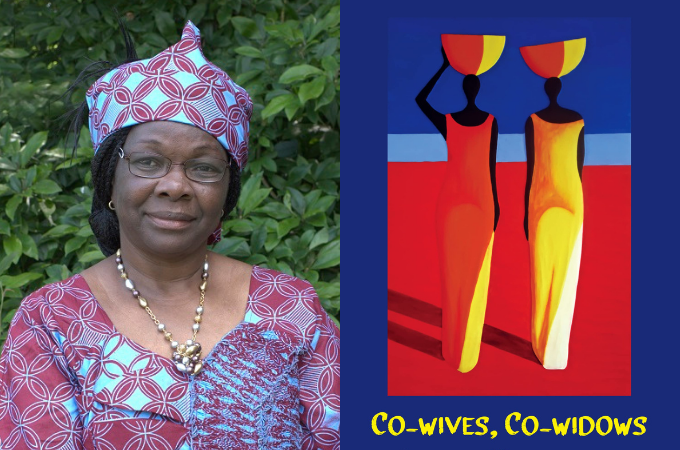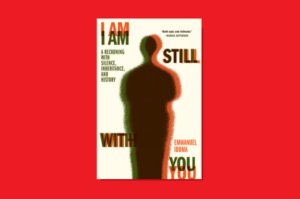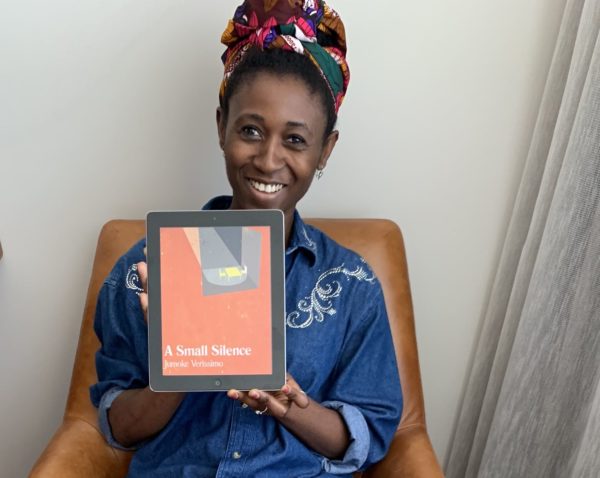
Co-wives and Co-widows is about polygamy, but not like you’ve seen it represented in African literature. With a few exceptions, stories about polygamy are often centered on pitting women against each other over the attention of a man. Adrienne Yabouza breaks from this mould. In the first Central African novel to be translated into English, we meet Ndongo Passy and Grekpoubou, two women living in what looks like a healthy, sexually fulfilling marriage with their husband Lidou.
A few pages into the book, Lidou dies, and Ndongo Passy and Grekpoubou’s lives are upended. When Lidou’s so-called best friend decides to play dirty, intent on enriching himself with Lidou’s estate, he couldn’t have known what was coming. All this drama, delicious in every twist and turn, is taking place against the backdrop of post-election intrigue. With this back-and-forth between the nation and the private lives of these women, Yabouza reveals the interconnecting forces that shape intimate lives, reminding us that the personal is always political.
Readers of Anglophone African literature are most likely meeting Yabouza for the first time. In fact, it is very likely that this will be their first encounter with literature from Central African Republic. Being the first Central African novel translated in English, Yabouza does not disappoint. Co-Wives, Co-Widows is a quick, delightful read, a novella that one could lap up in a sitting. The two main female characters are sharp and resourceful, always in problem-solving mode, hatching up plans to get the better of the patriarchal villains.
Yabouza’s novel is significant for a few reasons. First, it is an unconventional love story for centering love and romance within a polygamous context. You witness the lives of two women married to the same man but prioritizing their own desires and aspirations. Their lives are not centered on Lidou. We see it in the ways that Lidou, though a self-assured business man with some wealth, is clueless when it comes to important aspects of social life. The story opens with the wives leaving Lidou at home to go vote in the presidential election. Unlike his wives, he clearly does not value his voting rights, and the novel suggests as much in its representation of Lidou as an endearing old fool that is more worried about satisfying his wives sexually than caring about who sits in the highest office in the land.
Whatever Lidou is, it is clear that the household is centered on Ndongo Passy and Grekpoubou perspectives on the world, their desire for companionship, and their resourcefulness. This is why his death does not spell the end of their relationship but brings them closer. Their relationship blossoms, making space for them to share a deeply intimate bond that cannot be reduced to the presence of a man. The novel explores female bonding in the context of polygamy in much the same way that Buchi Emecheta does in her celebrated but controversial essay “Feminism with a Small f.” Emecheta’s claim that polygamy can be, in some cases, a woman-centered space that fosters sisterhood and community in opposition to patriarchal structures is in conversation with Yabouza book. Yabouza’s representation of Ndongo Passy and Grekpoubou’s relationship reminds us that polygamy in African contexts is a complex institution that, though deserving of critique, should not be caricatured as the evil opposite of monogamy.
One of the story’s emotional centers is Ndongo Passy and Grekpoubou’s battle with thieving relatives and an unjust legal system. Again, in presenting an unflinching picture of widows being abused by a patriarchal culture, Yabouza is careful not to present these women as hapless victims but to foreground their agency so that the big turning points in the story are all about the women staying one step ahead of the system, constantly in problem-solving mode, figuring ways to protect themselves and find whatever bit of justice they can.
The writing is gorgeous. Kudos to Rachael McGill for channeling Yabouza’s brilliance. The translation is so breezy, so easy, you inhale the book like air. And the humor! You’ll find statements such as: “the sun like the mosquito was pan-sexual and gregarious, every variety of flesh was welcome.” While Lidou is dying in his artisan Nguende chair, his wives are in church, listening to the priest declare “with the conviction of a slam poet or a travel agent, that life was easier in the other world than in this one.” A neighbor sights Lidou’s corpse and comments on how “large and beautiful” it seemed, noting that Lidou could very well “take part in a competition for the most beautiful dead body.”
Co-wives, Co-Widows is a heartwarming story about female friendship. It honors the kind of radical love that sustains women in times of hardship. The book is a delightful mix of humor, erotic love, and social justice.








COMMENTS -
Reader Interactions